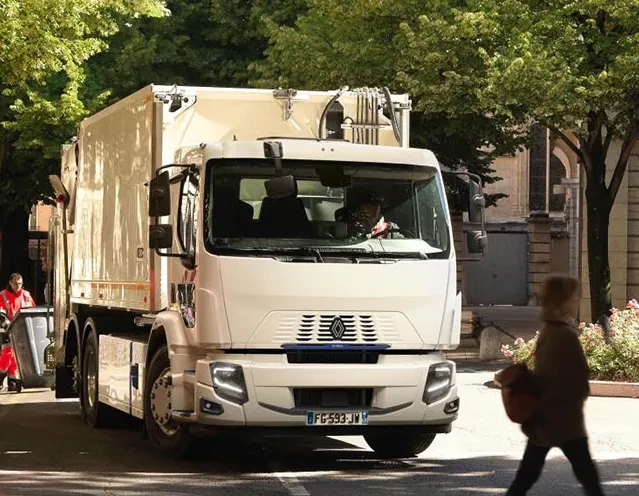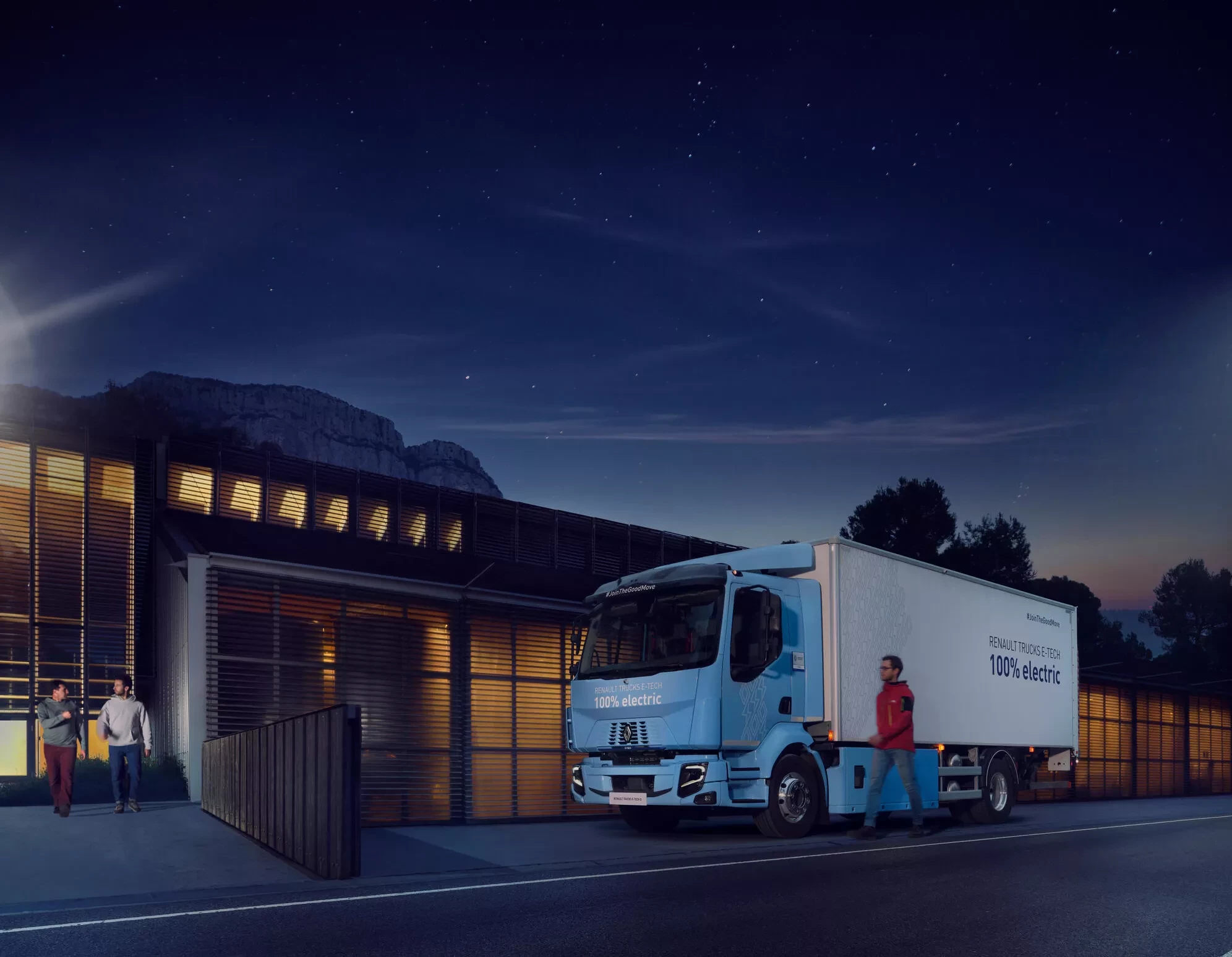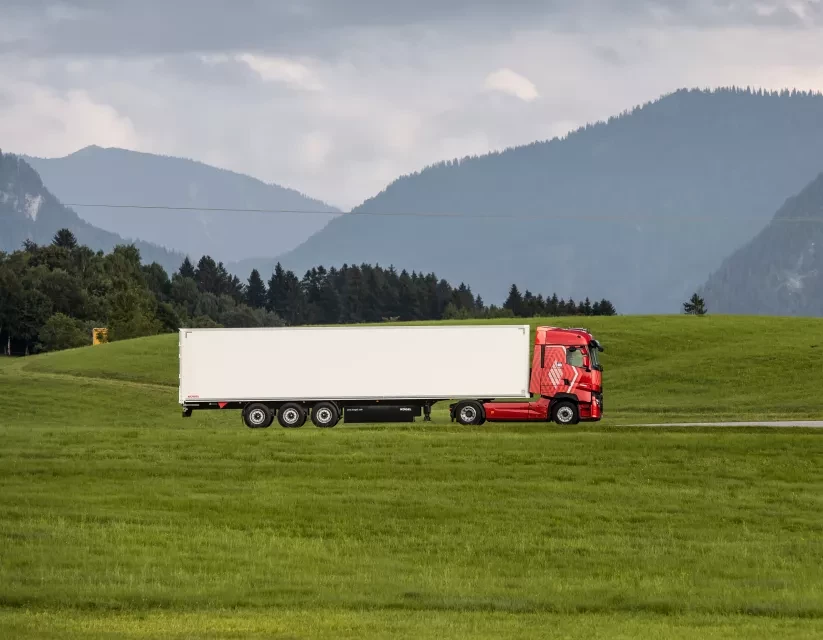THE CIRCULAR ECONOMY: ACHIEVEMENTS AND OUTLOOK
It is already six years since Renault Trucks made its ambitious commitment to the circular economy with two major goals: to guarantee the quality and sustainability of its trucks and to commit to reducing its carbon emissions. Now the time has come to review the achievements and look ahead to the future with renewed ambitions.
The 3 Rs underpinning a more virtuous economy
Innovation is not necessarily synonymous with novelty. Innovating, today, is primarily about designing clever, effective and sustainable solutions that preserve natural resources and minimise our impact.
The circular approach developed by Renault Trucks is the outcome of this innovation and rests on three pillars.
Regenerate: Vehicles that have had three or four years’ intensive use are reconditioned in one of the brand’s Used Truck Factories and updated with the most recent software. They are then returned to their owner and either put back on the road for another three years’ service, or resold. These regenerated trucks will therefore be used to the maximum of their service life and remain fully operational for over a million kilometres.
Repurpose: Used Renault Trucks are converted according to stringent industrial processes and subsequently repurposed. At the Used Trucks Factory - a workshop specialised in converting used trucks and situated within the Bourg-en-Bresse industrial site - long-haul tractors become rigid-chassis vehicles or worksite supply trucks.
Similarly, at dealerships, certain vehicles may also be retrofitted to become compatible with the B100 biofuel.
Return: This consists in recovering parts that can be renovated and subsequently inserted back into the after-sales circuit. Today, remanufacturing operations on engines, gearboxes, injectors and particle filters are carried out at the manufacturer’s Limoges plant.
But Renault Trucks does not intend to stop there and continues to invest in every area of the circular economy.
Eco-Designing Trucks
We have decided to track, right from the design phase, every opportunity to reduce the impact of the plastics that make up our trucks (5-7%) and encourage their circulation.
Renault Trucks is therefore testing new plastics containing natural materials such as seaweed, cork or oyster shells, with a view to designing cabin interiors that contain less carbon and are fully recyclable.
Recycling electric truck batteries
To accompany our electric mobility solutions, we are exploring the opportunities opened up by applications that give batteries a second life, or recycle or reuse them and their raw materials.
After an initial 8- to 10-year service life in an electric vehicle, batteries can be used again in stationary applications (in tandem with renewable-energy sources) or to balance the electricity grid. Then, when no longer serviceable, i.e. after 20 years of use, they can be recycled one last time to recover the raw materials (metals and other chemical elements) with which they are made.
Parts gainfully reused for trucks weighing less than 3.5 ts
In partnership with INDRA in France, Renault Trucks has set up its own network for dismantling end-of-life vehicles weighing less than 3.5 t, to reclaim and reuse parts. INDRA manages the certified centres, and collects and processes (pollution control, dismantling and destruction) the end-of-life vehicles.
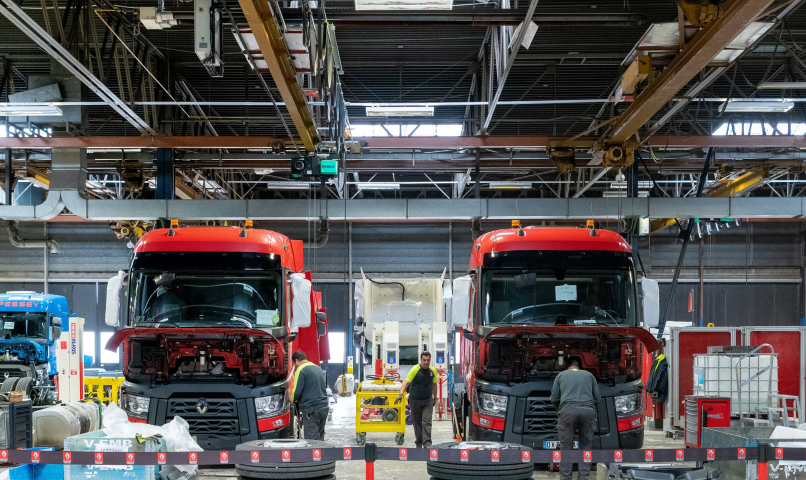
The circular economy at Renault Trucks in figures
92% to 97%
The rate of recyclability of Renault Trucks vehicles (depending on the range and the engine specification).
An additional 3 years
This is what we offer our customers so they can use their Renault Trucks vehicles for longer. In the refurbishing centre in Lyon, trucks that have been used intensively for three or four years are regenerated so that their owners can use them for another three years. This involves checking 200 inspection points, changing mechanical components and updating the electronics with the most recent software.
6%
This is the percentage of regenerated or repurposed trucks in the sales of used Renault Trucks vehicles.
98%
This is the percentage of raw materials that can be saved for each regenerated or repurposed vehicle, which equates to a saving of 7.7 t of CO2 emissions.
19 000 t
This is the weight of the CO2 emissions avoided in 2022 through the use of remanufactured parts.
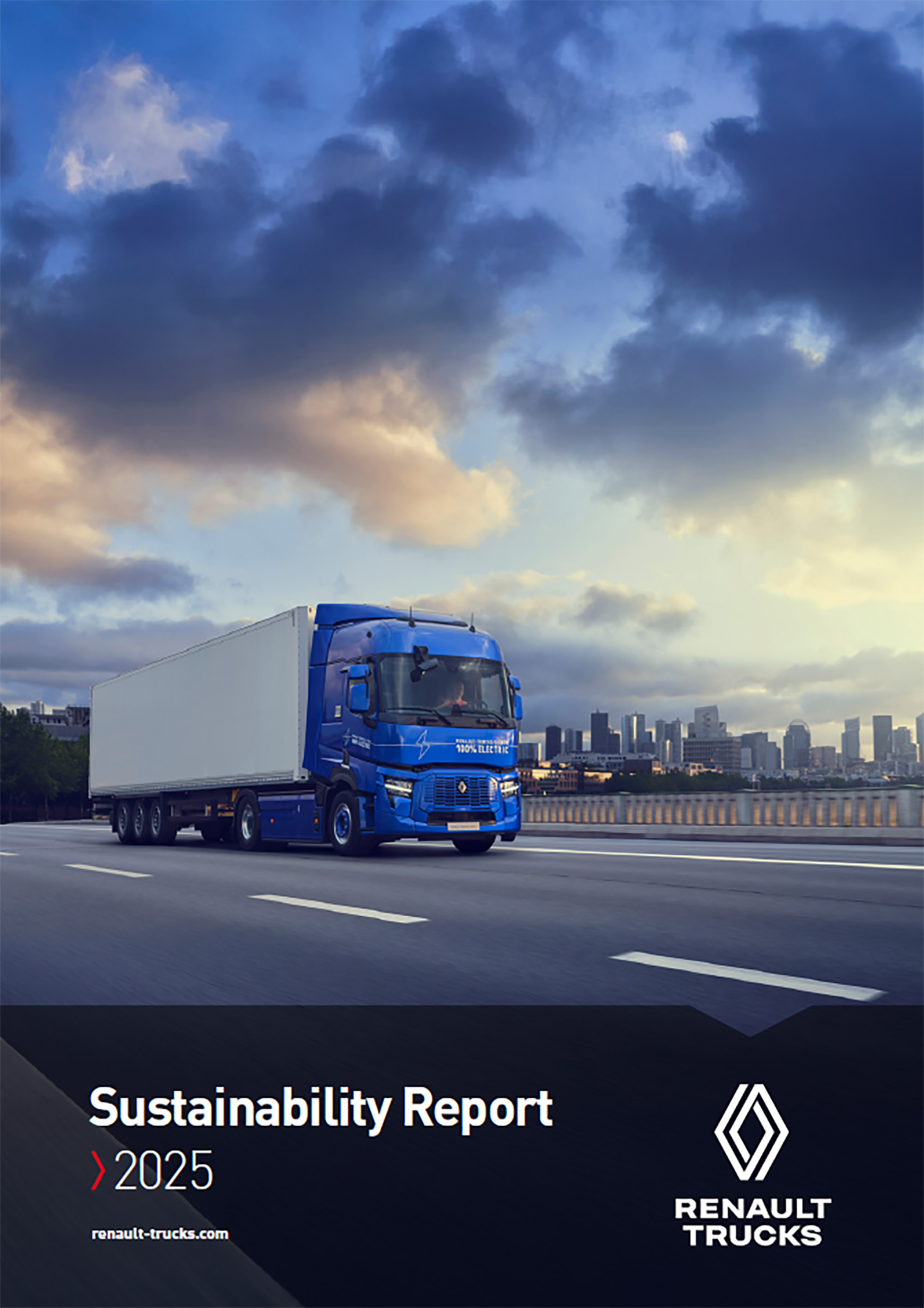
Renault Trucks has built a sustainable development model that takes into account economic, social and environmental issues in a balanced way.. In all its activities, Renault Trucks is committed to reducing its impact on the climate, using resources and conducting its business in the most responsible way.
The Renault Trucks 2025 Sustainability Report illustrates a vision of the future shared by all the company's employees, as well as concrete initiatives to transform the road transport industry.
Download the free Renault Trucks' Sustainability Report 2025


